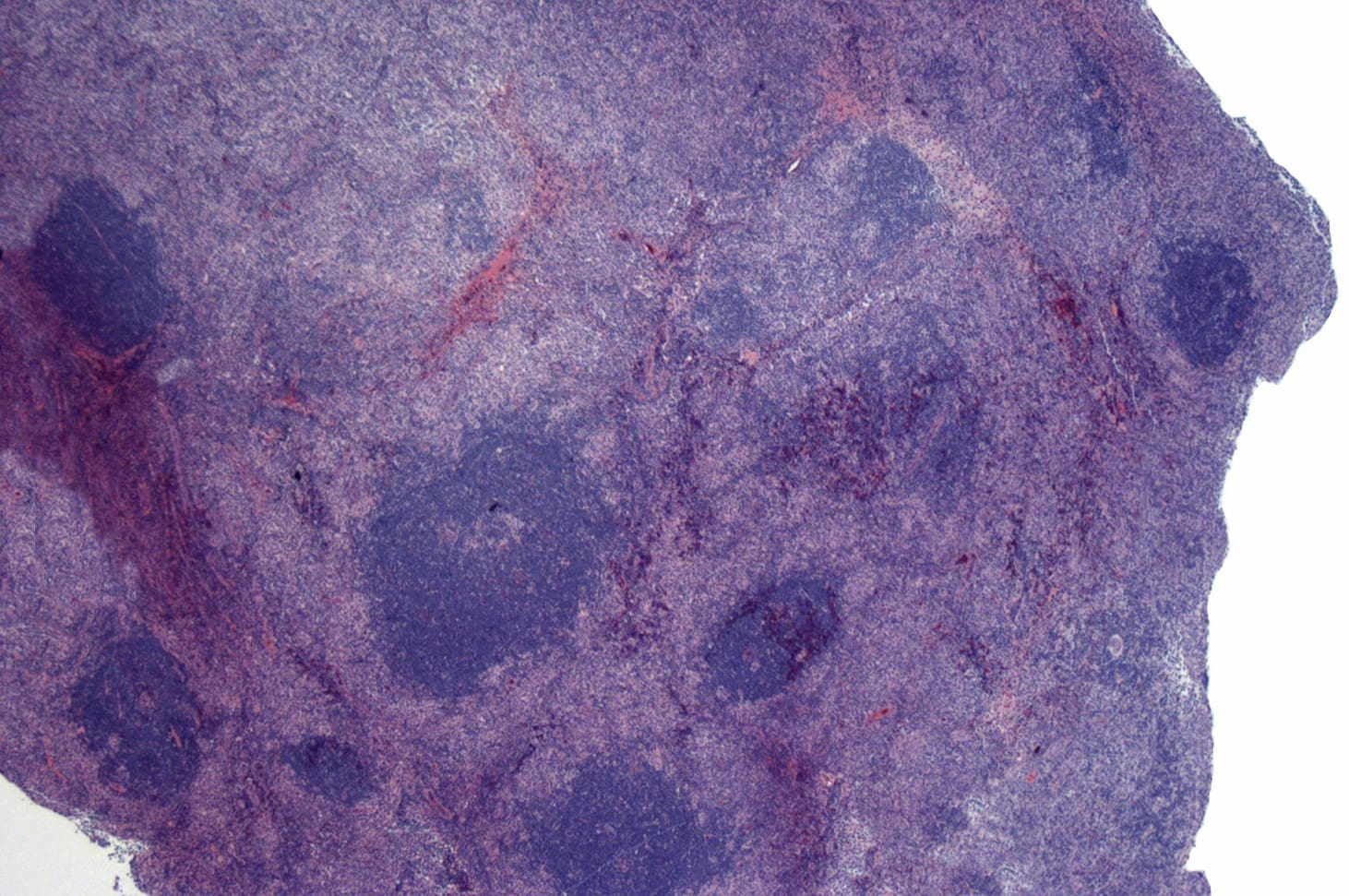
Angioimmunoblastic Lymphadenopathy With Dysproteinemia (AILD) is a rare type of lymphoma that affects the immune system. This disease primarily involves the lymph nodes, causing them to become enlarged. Symptoms often include fever, night sweats, weight loss, and skin rashes. Diagnosis can be challenging due to its similarity to other lymphomas and autoimmune disorders. Treatment typically involves chemotherapy, immunotherapy, or a combination of both. Understanding AILD is crucial for early detection and effective management. In this post, we'll explore 20 essential facts about AILD to help you grasp its complexities and impact on health.
What is Angioimmunoblastic Lymphadenopathy With Dysproteinemia?
Angioimmunoblastic Lymphadenopathy With Dysproteinemia (AILD) is a rare type of lymphoma. It affects the lymphatic system, which is part of the immune system. This disease can be complex and often requires specialized medical attention.
-
AILD is a subtype of T-cell lymphoma. It originates from T-cells, a type of white blood cell crucial for immune response.
-
First described in 1974. Researchers first identified AILD in the medical literature in the mid-1970s, making it a relatively recent discovery in the field of oncology.
-
Characterized by abnormal lymph nodes. Patients often present with enlarged lymph nodes, which can be painful or tender.
Symptoms of AILD
Understanding the symptoms can help in early detection and treatment. Here are some common signs to look out for.
-
Fever and night sweats. These are common symptoms that can be mistaken for other illnesses.
-
Weight loss. Unexplained weight loss is often a red flag for serious health conditions, including AILD.
-
Skin rashes. Patients may develop various skin rashes, which can be itchy or painful.
Causes and Risk Factors
The exact cause of AILD is not well understood, but several factors may contribute to its development.
-
Viral infections. Some studies suggest a link between AILD and viral infections like Epstein-Barr virus (EBV).
-
Age. Most cases occur in older adults, typically those over 60 years old.
-
Gender. Men are slightly more likely to develop AILD than women.
Diagnosis of AILD
Diagnosing AILD can be challenging due to its rarity and the similarity of its symptoms to other conditions.
-
Biopsy. A tissue sample from an affected lymph node is often required for a definitive diagnosis.
-
Blood tests. These can help identify abnormal proteins and other markers indicative of AILD.
-
Imaging studies. CT scans and PET scans are commonly used to assess the extent of the disease.
Treatment Options
Treatment for AILD often involves a combination of therapies. Here are some common approaches.
-
Chemotherapy. This is the most common treatment and involves using drugs to kill cancer cells.
-
Steroids. These can help reduce inflammation and manage symptoms.
-
Immunotherapy. This newer treatment option aims to boost the body's immune system to fight the cancer.
Prognosis and Survival Rates
The prognosis for AILD can vary widely depending on several factors.
-
Early diagnosis improves outcomes. Early detection and treatment can significantly improve survival rates.
-
Relapse is common. Many patients experience a relapse, requiring additional treatment.
-
Five-year survival rate. The five-year survival rate for AILD is around 30-40%, but this can vary based on individual circumstances.
Research and Future Directions
Ongoing research aims to better understand AILD and develop more effective treatments.
-
Clinical trials. Many new treatments are being tested in clinical trials, offering hope for better outcomes.
-
Genetic studies. Researchers are exploring the genetic factors that may contribute to AILD, which could lead to more personalized treatments.
Key Takeaways on Angioimmunoblastic Lymphadenopathy With Dysproteinemia
Angioimmunoblastic Lymphadenopathy With Dysproteinemia (AILD) is a rare and complex disorder. It involves abnormal growth of lymph nodes and immune system dysfunction. Symptoms often include fever, weight loss, and skin rashes. Diagnosis usually requires a biopsy and various blood tests. Treatment options range from corticosteroids to chemotherapy, depending on severity. Early detection can improve outcomes, but the condition remains challenging to manage. Research is ongoing to better understand and treat AILD. Awareness and education about this disorder are crucial for patients and healthcare providers. If you or someone you know shows symptoms, consult a medical professional promptly. Understanding AILD can lead to better care and support for those affected.
Was this page helpful?
Our commitment to delivering trustworthy and engaging content is at the heart of what we do. Each fact on our site is contributed by real users like you, bringing a wealth of diverse insights and information. To ensure the highest standards of accuracy and reliability, our dedicated editors meticulously review each submission. This process guarantees that the facts we share are not only fascinating but also credible. Trust in our commitment to quality and authenticity as you explore and learn with us.


